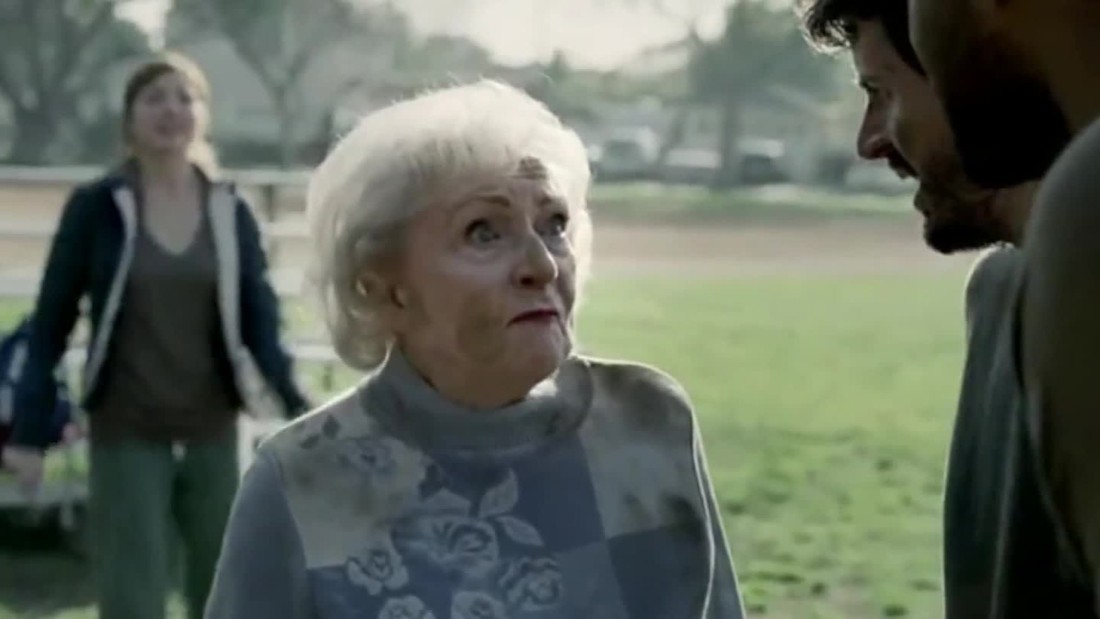
Behind the scenes, marketing and public relations agencies have for weeks been offering these celebrities and others who will shill for an audience of millions on game day for interviews with reporters to talk about their endorsements on behalf of the brands that have hired them. The thinking, of course, is that hearing about a celebrity's personal connection to the product will somehow make their endorsement resonate.
The theory isn't wrong, but unlike the dating world, brands can't just swipe right to find a perfect match. When it comes to Super Bowl commercials, picking the right famous spokesperson can capture the type of magic born when Betty White sold Snickers or when Cindy Crawford sipped a Pepsi.
"Authenticity is one of the key tenants, if not the core tenants to endorsement," Janet Comenos, co-founder and CEO of celebrity data and research company Spotted, tells CNN. "If consumers are mistrusting of the authentic relationship between the celebrity and the brand and they don't believe it, then they're not going to engage with it and they're not going to make a purchase or take further action."
The effectiveness of celebrity endorsements, Comenos admits, is "not the most measurable marketing activity out there." But there is data that can speak to some of those that have worked for brands.
She points to the partnerships between Matthew McConaughey and Lincoln Motor Co., Dwayne Johnson and Under Armour, and Reese Witherspoon and Crate & Barrel as successful campaigns that resonated with consumers, according to Spotted's analysis.
More debatable -- and largely unmeasurable -- is the damage done to a brand like Proactiv when, in announcing Kendall Jenner as its latest spokesperson, became the target of backlash from eagle-eyed observers who noted that Jenner in the past had credited Christie Kidd, a Beverly Hills-based physician assistant, for #blessing her with clear skin.
Proactiv did not respond to CNN's request for comment.
"I think we've actually seen that the Kardashians clan in general does not score super high in terms of consumer approval," Comenos said. "Trust is one of the core tenants of our consumer approval metric and that can lead to lesser results with their campaigns because people think that they're just kind of slapping their name on any brand."
Comenos said that of the roughly 23,000 celebrities Spotted tracks globally, the majority of endorsement deals go to only about one percent of the world's talent.
So far this year, Super Bowl ads have trended away from the top-tier A-list stars in favor of emerging names and those one wrung below the A-list bracket. This trend, Comenos said, is the result of brands trying to maximize their budgets.
What really hasn't changed is some brands' willingness to partner with a celebrity who has a "dodgy past," Comenos said.
Spotted provides companies with so-called risk profiles for celebrities with whom they are considering working. These data reports track a person's history in about 60 different risk areas, everything from criminal incidents to social media feuds. While it would be assumed that brands would want to steer clear of controversial figures, that's not always true.
Sometimes, the buzz generated by a tabloid-favorite figure or the opportunity to nod to their past is worth the risk.
In one Super Bowl spot this year, Charlie Sheen teams up with Planters for a commercial in which a speeding vehicle shaped like a peanut commits a daredevil act of stunt driving in order to stop Alex Rodriguez from eating kale chips.
Sheen's kicker as he watches the nut zoom by? "And people think I'm nuts."
And it may turn out that Planters isn't either.
Bagikan Berita Ini














0 Response to "What makes a celebrity endorsement a touchdown"
Post a Comment